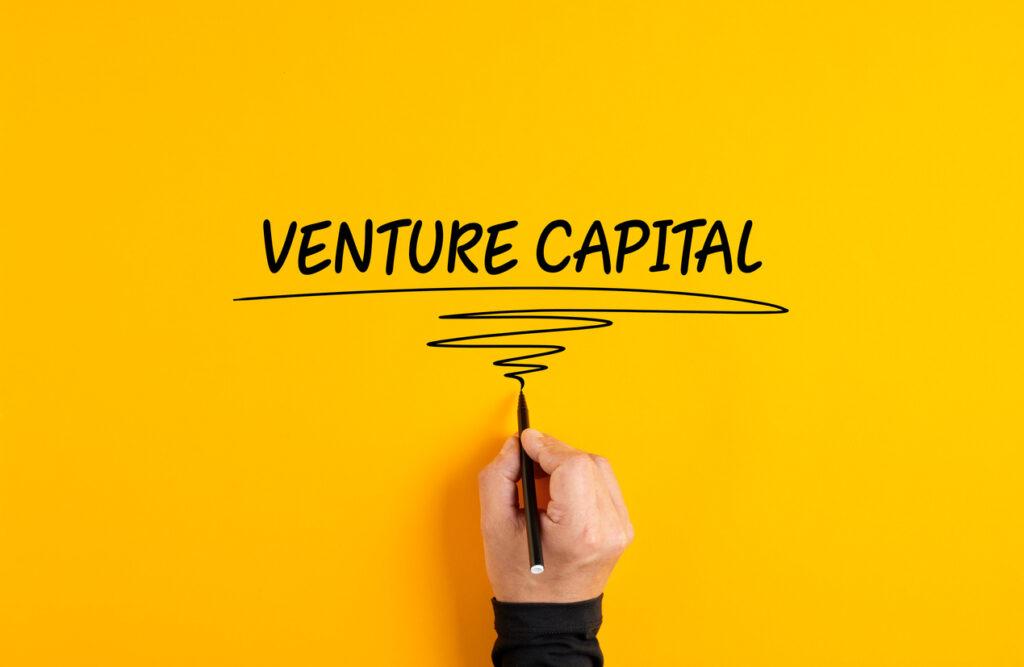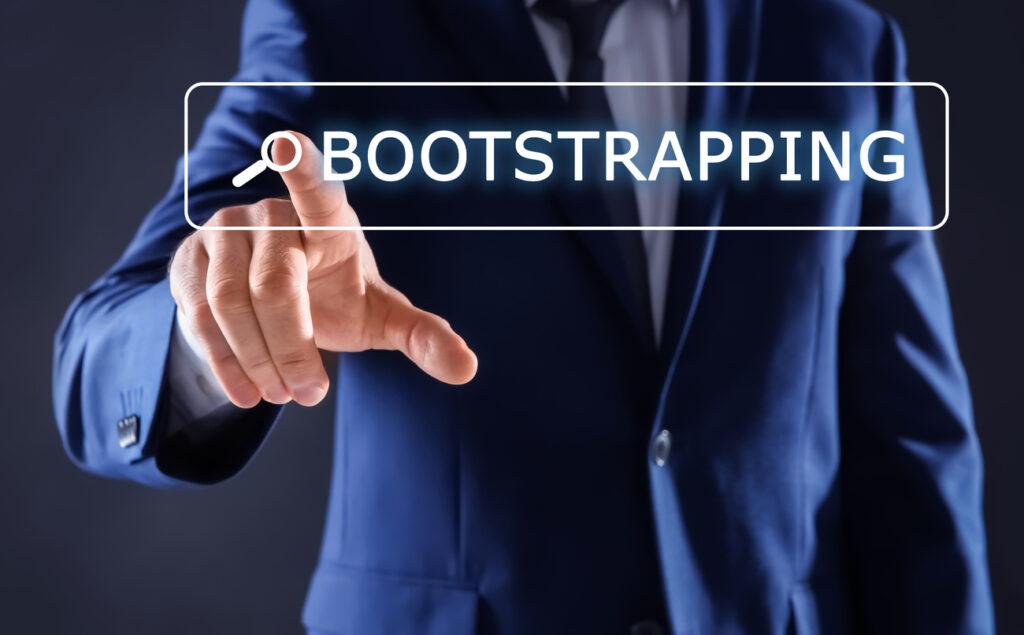Key Points
- Venture capital or VC is a form of private equity and financing that investors give to small businesses and startup companies that are thought to possess long-term growth potential.
- Pros of VC include expert help, decreased personal risk, quicker growth, and additional credibility. VC cons include less time spent on business, gender bias, misunderstandings, control loss, and reduced financial discipline.
- Bootstrapping is when an entrepreneur starts a business with little capital, depending on money other than outside investments. A person is described as bootstrapping when they try to found and build a business from personal finances or the operative revenues of the new business.
- Pros of bootstrapping include that it is profit-driven, and you have freedom, customer and product focus, and the obligation to spend sensibly. Bootstrapping cons include slow growth, little money to reinvest, personal risk, competition, and lack of expert help and connections.
- Investing in SEO services to help your startup company is an excellent idea. Book a free consultation call with SEO experts NUOPTIMA to learn how we can increase your visibility and organic search traffic and ultimately improve your success.

What is Venture Capital (VC)?
Venture capital — or VC — is a type of private equity and financing that investors give to small businesses and startup companies that are thought to possess the potential for long-term growth. VC usually comes from wealthy investors, investment banks, and any other facet of financial institutions. But, it is not always in monetary form as it can also be given in the form of managerial or technical expertise. VC is generally allocated to small businesses with extraordinary growth potential or businesses that have grown fast and seem ready to continue expanding. While it can be a considerable risk for investors who offer monetary funds, the potential for exceptional returns is an appealing reward. For new ventures or businesses with a limited operating history (typically under two years), VC is becoming a more popular and potentially vital source of raising funds, particularly if they cannot gain access to bank loans, capital markets, or other debt options.
Venture Capital Pros and Cons
Before deciding whether VC is the right choice for you, it is important to consider the benefits and disadvantages of taking this route. Let’s consider some of the major pros and cons.
Venture Capital Pros
- Expert Help. Money is just one resource provided by venture capitalists; another essential resource is expert advice and help. Because VCs usually have numerous contacts, this can lead to beneficial partnerships, new staff, more customers, and more. Conversely, with bootstrapping, you have to rely on your individual contacts and network, which can sometimes be lacking. There are countless cases where one particular phone call, email, or meeting with a VC has led to a pivot, a fresh idea, or a sale that determines the startup turning into a triumph.
- Decreased Personal Risk. Bootstrapping involves the danger of losing all the money you invested, which can sometimes include money raised through crowdfunding or personal savings. But, with VC, this risk completely dissipates. Of course, this is if the VCs take equity in the startup, which means the founder then has no responsibility to repay money if the startup shuts down or fails. But, with many bootstrappers that request a bank loan to begin their company, the personal risk is vast as the money has to be paid back on top of interest.
- Quicker Growth. The primary objective of a VC once they have invested in a startup is to make it grow fast so they can receive their investment back in a short time. VC money means that founders can spend money on hiring experienced and highly skilled staff, launching new features or products, acquiring the latest technology, and more, without worrying about revenue and profits. The aim is to grow fast, regardless of the cost. Growing big quickly usually involves a big business idea with a huge potential market, so VCs are the best way to go as building something new demands a lot of money.
- Additional credibility. Each time you hear that a certain startup has raised a particular amount of money, more trust is felt toward that business, and the products and features of the startup become more popular. This is because potential customers and investors will feel safe dealing with a business which shows obvious signs of growth and improvement. Indeed, when a company receives a large investment, it encourages consumers to continue using it, as the influx of money constitutes new features, better customer support, and improved user experience.
Venture Capital Cons
- Less Time Spent on Business. It takes a long time to get money from a VC. The process demands a laborious contact process, endless meetings, long negotiations, the filling out of various legal documentation, and other monotonous tasks. Even once the deal is closed and you have the money in your bank account, much time still needs to be spent preserving relationships with your VCs and keeping them informed on what is going on business-wise. This leads to founders sharing their time between working on their business and fundraising, which can ultimately put off customers and cause bad decision-making.
- Gender Bias. Statistically, a small percentage of VC deals have gone to a startup whose CEO was a woman. Even as there is increasing visibility for women in VC-backed businesses, the ratio is still very low. It is true that, in part, more men start a business in VC areas. Still, the colossal disparity could be seen as discriminatory action by VCs, particularly as women in business argue their primary issue is lack of capital.
- Misunderstandings. Maintaining a strong relationship with investors is important for every VC-backed startup. If founders take advantage of VCs’ advice and connections and keep growing, there are opportunities for future business funding rounds. Conversely, some startups fail due to poor money management after investors do not wish to provide them with further funds. But, as in all relationships, the course does not always run smoothly. There could be varying opinions between VCs and founders that can cause clashes where each side wishes to display how they are more powerful. Misunderstandings are always possible, but the trick is avoiding them with clear and continual communication. There needs to be a balance found between a distant relationship and a claustrophobic one.
- Control Loss. As soon as you give up some equity in your startup in exchange for money, you lose complete control over the startup. Big decisions will now require consultation with the VC firm. This control loss is the main reason many people are against VCs. They see having a VC firm telling you what you should and should not do the same as working at a business under a superior. Some founders begin companies with specific aims in mind and with detailed goals and purposes for the future. In this scenario, VC funding is most likely not the best path to take as the VCs’ visions could be completely different.
- Decreased Financial Discipline. When large numbers appear in your company bank account, it can be hard to spend it wisely. VC-backed businesses generally spend more money on the same things that bootstrapped startups can achieve while spending much less money. Expenses increase when VCs demand quick growth. Aside from costs, profits tend to stop being the central priority in VC-funded startups. VCs encourage growth, and only when a startup possesses a robust customer base do they turn their attention to the business model and monetisation.

What is Bootstrapping?
Bootstrapping describes a situation where an entrepreneur starts a business with little capital, depending on money other than outside investments. A person is described as bootstrapping when they attempt to found and build a company from personal finances or the operative revenues of the new business. A famous example of a successful bootstrapped company is GoPro.
Bootstrapping Pros and Cons
Let’s now consider the benefits and drawbacks of bootstrapping.
Bootstrapping Pros
- Profit-driven. A large amount of media and thought leaders have recently criticised a common concept among VCs i.e. the focus on growth and making things happen quicker while ignoring business profits. Cash flow is paramount and the primary thing you must control when starting a business. The bootstrapping avenue forces founders to be conservative with money and to consider business profits. VCs demand you discover a way to spend all the money they give you while bootstrapping forces you to focus on how you will make that money. Any investments are made with careful consideration of the amount of time it will take the company to get the money back. One of the goals of bootstrapping is to assist you in making money.
- Freedom. An obvious but key benefit to this option is not diluting ownership in your business. Even if you possess one or two co-founders, you could have a higher percentage of ownership than those who go over numerous fundraising series. This can also mean that shares owned by founders of small, bootstrapped startups are worth more than shares owned by founders of big, VC-backed startups. This complete ownership of founders over bootstrapped startups lets them completely dictate both the management and future of their companies, attaining a ‘lifestyle business’. VCs have individual goals, interests, and motivations. Due to the money they have invested, they will be in a strong place to tell you what to do and how, and if their interests vary from yours, there could be a clash of ideas. It is possible you will not feel free due to your autocratic bosses.
- Customer and Product Focus. Bootstrapped startup founders can spend all of their time making a great product customers love and growing the business itself too. VC-backed startup founders must divide their time between working on their business and impressing, updating, meeting, and negotiating with investors. Being able to spend all your time in the company means you are more connected with what is going on as well as with your customers, leading to longer user retention and improved decisions. Furthermore, at the beginning stages of a startup, a sole focus on the company and customers can lead to reaching an ideal product-market fit quicker, justifying the idea before getting tied to a product that will never be successful.
- Spend Sensibly. The cost of starting a company is relatively low these days. Building a successful business now depends more on discipline, capable management, and innovation rather than having lots of money to invest. Even if you have no knowledge about businesses, a vast amount of great free content is available. If you have little money to invest, there are also lots of free tools that can help at least validate your idea and make your first pounds, if not totally build your business. VCs incentivise founders to spend the money they offer to achieve growth. Large amounts of this money will not be spent wisely. But, with bootstrapping, you have no alternative but to control every penny spent carefully.
Bootstrapping Cons
- Slow Growth. Bootstrapped companies have little money to reinvest in development and research or hiring employees. This is compared to VC-backed companies that can get quicker production processes, use pricey technology, and acquire other firms. There is no question that your bootstrapped business growth will be much slower than if you chose VC. There will also be limitations in terms of visibility without VC money. Marketing strategies become viral campaigns if fast results need to be gained or inbound if long-term aims are set. Few paid adverts can be made until retained earnings increase. Moreover, hiring staff will be virtually impossible for some time. If you are not co-founding your startups with other entrepreneurs specialised in various areas, such as marketing, design, and human resources, your business growth could be backstabbed by errors you will make and obstacles you will encounter.
- Little Money to Reinvest. Bootstrapping means you must use personal savings and resources or debt capital to start your company. As the startups start to grow in relation to revenue and profits, you will have higher numbers of retained earnings. But, the profits you retain will never be as much as what VCs can offer. This means you do not have ample funds to reinvest in new products, employees, or acquisitions, among other expenditures you can permit yourself when you are a VC-backed startup founder. Little money to reinvest is the central disadvantage of bootstrapping and contributes to all the other cons mentioned here.
- Personal Risk. The vast majority of startups fail. This means with bootstrapping that you have an extremely high chance of losing all the money you put into beginning the business. When going the VC route, the money derives from others, so there is not much to worry about. There are endless reasons why startups fail, and regardless of how experienced, skilled, and persistent you are, you are still likely to be forced to close your business and lose everything. You will spend hours a day determining how to achieve profits knowing there is a good chance you will fail and lose all your invested money.
- Competition. This can be a major drawback for bootstrap startups in two scenarios. Firstly, when launching a new business in a competitive market (or one soon to be competitive). There are some industries dominated by huge VC-backed brands that you cannot get into, especially without any VC money. Secondly, when you already have a robust bootstrapped business that is growing steadily and achieving profits, but competitors begin raising funds, or a new VC-backed firm turns up in the market. There is little to do in this case other than considering raising your first round. Otherwise, competitors will surpass you in terms of features and costs, which can ultimately lead to them purloining all of your customers.
- Lack of Help and Connections. Money is simply one benefit of VCs. A second is getting expert help and connections that can lead to beneficial partnerships, better visibility, and attaining key markets. But, strategic connections with all types of people may be facilitated. They play a critical role in either the success or failure of businesses.
Considerations to Make When Choosing Between VC and Bootstrapping
Ultimately, choosing the best option for your business comes down to you and your decision-making. To help you make this choice, watch this video by TechCrunch where two founders with different funding approaches explain their experiences.
Additionally, below we have listed some questions to ask yourself when weighing up the two to help you determine the right avenue for you.
- Are you currently growing at more than 100% year-on-year?
- Would gaining further investment in product or sales at least double your growth rate?
- Is your product unique or a first mover?
- Will more money solve the majority of your growth challenges?
- Do you have the capability to raise funds?
- Do you risk being overwhelmed by copycats if you do not take an aggressive growth avenue?
- Have you used up all the options of sustainable or organic growth?
- Have you attempted a low burn path for growth?
- Do you have a good chance of becoming a £100+ million company?
- Are you at the inflexion point of hockey-stick growth (sudden and rapid growth after a long period of linear growth)?
- Do you have a history of raising funding?
- Do you align yourself to the ‘go big or go home’ philosophy?

Invest in SEO Services
If you are a founder of a startup company either in possession of money or with the intention of raising capital, it is highly recommended that you invest in SEO services to help accelerate your business.
What are SEO Services?
SEO stands for search engine optimisation and is the process of increasing visibility and organic search traffic to a website. It aims to improve your position in search engine results pages (SERPs) because the higher a website is listed, the more people will view it. Therefore, SEO services are agencies or freelancers that are experts in the field and conduct SEO for your business and its website to ultimately improve its success. There are more than 200 factors that determine what makes a page rank high on SERPs, and a good SEO company generally includes conducting work such as:
- Website content analysis (including conversion rate)
- Website structure analysis
- Optimisation of website code and structure
- Optimisation of onsite content
- Off-page online analysis
- Optimisation of off-page factors
Why Do Startups Need SEO Services?
An SEO strategy is a formidable tool for any startup, and there are many reasons to invest in these services. Below are just a few reasons why your startup company should consider SEO services:
- SEO delivers customer behaviour data to startups. This gives you data about what potential customers are looking for and what words the target customer audience uses to conduct searches.
- SEO leads to higher traffic and conversions. SEO helps startups gain traffic that can lead to conversions and revenue.
- SEO helps startups make informed business decisions. The information gained from SEO can be applied to an overall business strategy to determine the founder’s decisions, which leads to successful launch and growth stages.
- Optimising for Google strengthens consumer value and trust. When a company shows up relatively high on search results, it builds customer trust, which the business can then work from to build respect and credibility. This is vital for a new brand relying on digital channels for conversions.
- Put simply, SEO delivers results for startups. Building a digital presence is compulsory for any startup, regardless of industry. SEO is the best way to gain brand equity, awareness and traction. SEO is the best way to form a brand for startups that do not want to spend on large-scale advertising campaigns.
- SEO builds a long-term audience. Paying for adverts brings short-term results at a high price. SEO assists businesses in providing their visitors with the content they are after, so SEO builds an audience over time.
Choose NUOPTIMA: Full-Stack SEO Agency
If you want to give your startup company the best opportunity for success, it is an excellent idea to hire NUOPTIMA. We are a full-stack SEO agency with a plethora of experience conducting SEO for clients across many industries, including startups. Therefore, we know exactly what needs to be done to get your business website on the first page of Google. We have a diverse, expert team with years of experience under their belts who use numerous strategies to maximise the success of your startup company. Book a Growth Strategy Call today with one of NUOPTIMA’s experts to explore how our agency can benefit your startup brand.



